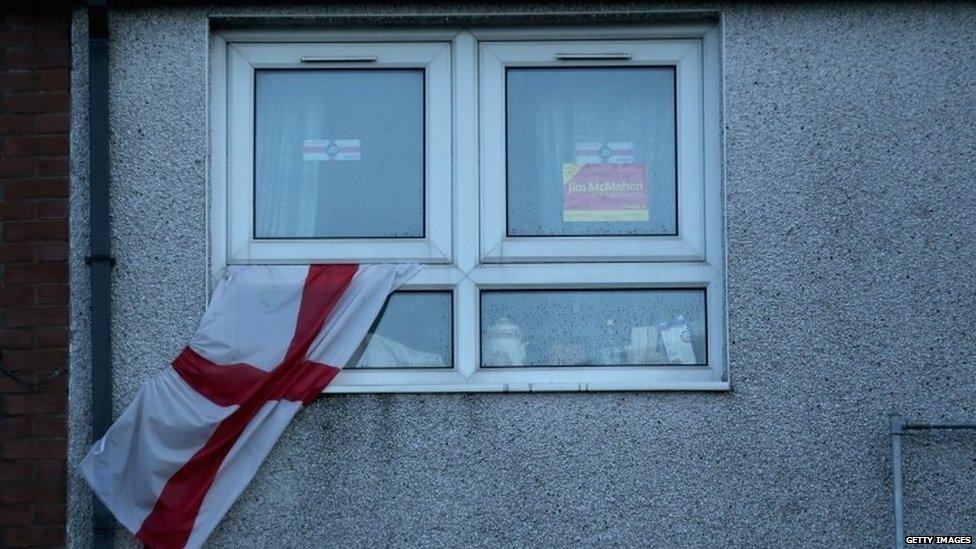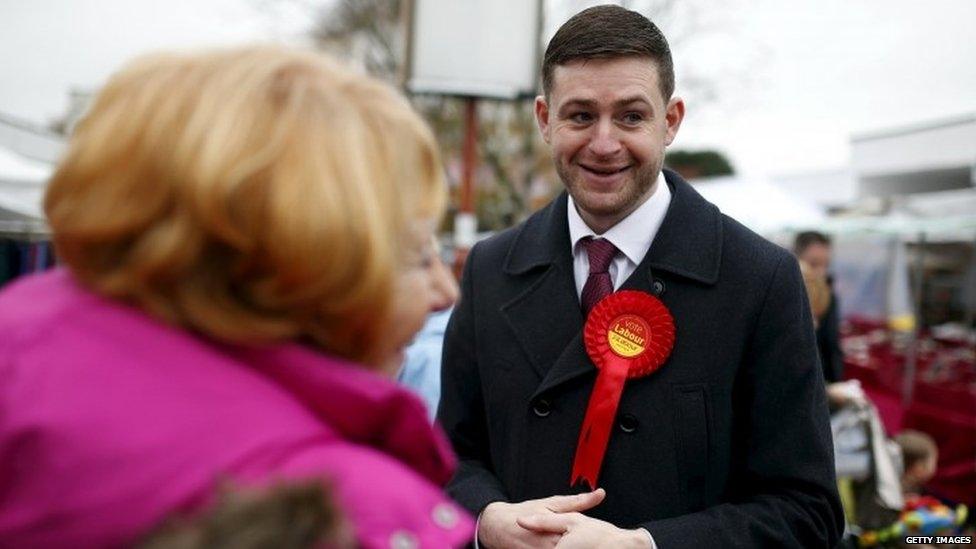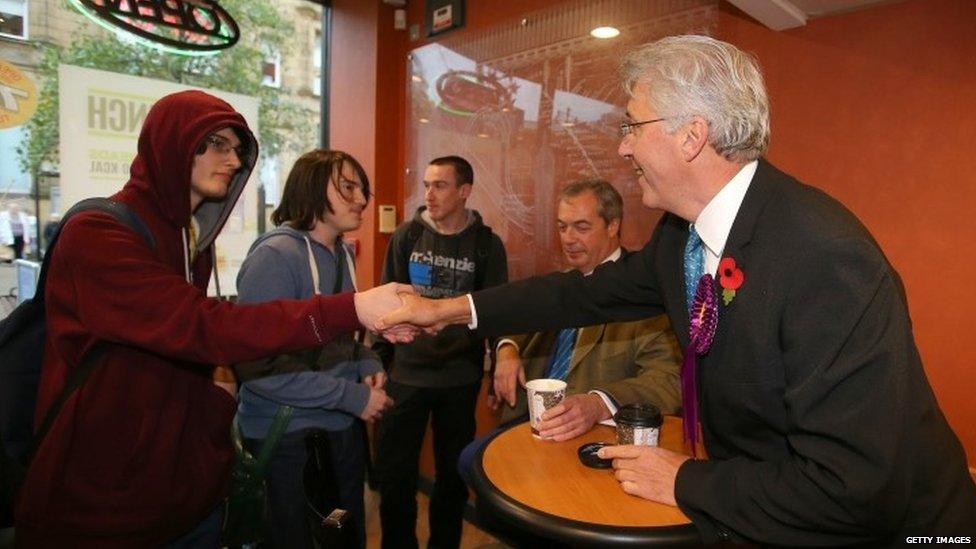Labour's Oldham by-election nerves
- Published

Labour is sitting on a 14,000 majority but the eagerness of its supporters remains to be seen
If you want to know who is going to win the Oldham West and Royton by-election next Thursday, don't listen to the bookies or people like me. Instead consult the weather forecast.
For the outcome of this poll will most likely be determined by which voters are prepared to turn out on a dank, dark December day.
For Labour, this seat should be as safe as Oldham's red-bricked terraced houses. The constituency has been Labour for most of its existence. The late Michael Meacher bequeathed a majority of more than 14,000 after a 45-year incumbency.
The party's candidate is a dynamic young council leader with a strong power base and a moderate background. "He's definitely not a Maoist," one senior UKIP figure told me with a sigh.
And yet Labour MPs campaigning on the doorstep are nervous. They are picking up that many of the party's traditional supporters are planning to stay at home or even switch to UKIP. Many of these are from the white working classes in this less than well off constituency.
They seem unimpressed by Labour's divisions and some don't like the cut of Jeremy Corbyn's jib. They don't seem to understand him and his brand of what they see as a form of metropolitan leftism. One voter told me: "I am a socialist, but he's ruddy communist."
'Referendum on Corbyn'
Others fear that Labour's economic competence under Mr Corbyn is as much a threat to their jobs as a Tory government that leaves them vulnerable to the vicissitudes of the global economy.
Some are just people whose loyalties were to Michael Meacher rather than Labour per se and now feel less bound to vote for the party.
These are fears that UKIP is exploiting to the full. The party came second here in the general election and fancies its chances. Just over a year ago they came within 600 votes of defeating Labour in a neighbouring by-election.
UKIP began the campaign targeting Mr Corbyn's patriotism after he failed to sing the national anthem and appeared equivocal about the future of the Falkland Islands.

The Labour candidate, Jim McMahon, has a strong local power base

UKIP is hoping to give Labour a "scare" but could they pull off a surprise?
But after the Paris attacks, UKIP moved up a gear, highlighting Mr Corbyn's reluctance to authorise lethal force against terrorism and his party's contortions over bombing so-called Islamic State in Syria. The party hopes this uncertainty over security issues will resonate in a constituency that is still proud to be the place where the Dambuster Lancaster bombers were built.
This is UKIP's strongest card. They are attacking Labour's record locally - such as council spending levels - but the party's traditional issues such as Europe and immigration do not appear to be playing big. So it is to Mr Corbyn's performance that they return.
As Paul Nuttall, UKIP's deputy leader, told me: "This election is a referendum on Jeremy Corbyn."
UKIP hopes that this strategy will not only attract some disaffected Labour supporters but might also appeal to traditional Conservative supporters.
The Tories came a narrow third here last year with more than 8,000 votes that UKIP hopes to squeeze in their favour. The Tories have a personable candidate campaigning on the usual local issues - crime, transport and cleaner streets - but there is little evidence of a huge investment of party funds by an London apparatus gripped by the psychodrama of an in-house sex scandal.
Two-horse race
So on what do Labour hopes rest? The sheer inertia of a 14,000 majority is not to be sniffed at. I spoke to several voters who said they would continue voting Labour despite their doubts about Mr Corbyn.
There is also the simple fact that a quarter of the electorate in Oldham West and Royton is largely Pakistani and Bagladeshi in origin, communities that have a long tradition here of voting Labour.
Even the Tories admit these groups are efficient at organising their postal votes and getting their people out to polling stations on the day. Some may be disappointed that Labour did not choose an Asian candidate to fight this seat. But few appear attracted by UKIP. So if Labour can ensure a decent turn out of these voters, they should be secure.
But once again I return to the weather. If it is raining, as it is occasionally known to do in Greater Manchester, then turnout could be low. And if unenthusiastic Labour voters turn out in fewer numbers than expected and motivated UKIP supporters are joined by Tories hoping to give Labour a kicking, then suddenly the arithmetic could look very tight.
The usual expectations game is being played and both runners in this two-horse race are trying to play down their chances. UKIP talks of "making in-roads into Labour's vote" and "giving them a scare". Labour types suck their teeth and shake their heads with concern.
But push them a little and the consensus one week out is that most expect Labour to hold the seat with a narrow majority. But such is the turmoil in Labour over Mr Corbyn's handling of the Syria crisis that votes could still shift in the final days.

Full list of declared candidates:
Conservative: James Daly
Green Party: Simeon Hart
Labour: Jim McMahon
Liberal Democrat: Jane Brophy
Monster Raving Loony: Sir Oink A-Lot
UKIP: John Bickley
- Published26 November 2015